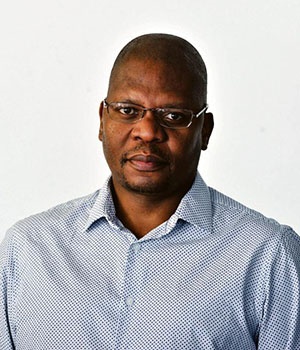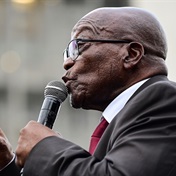
Apartheid South Africa produced a lot of bad people: serial killers, murderers, torturers, sadists, rapists and poisoners, and those with generally dark souls.
This is not surprising since apartheid was built on hatred and evil. In order to implement it, you had to learn and internalise badness and, in order to defend it, you had to cleanse yourself of all vestiges of conscience.
Apartheid also attracted the worst white people from other parts of the world. The racists’ paradise was a place where hating black people and treating them like mongrels was the passport to social acceptance.
The white immigrants enjoyed legislated racism so much that they were often a heck of a lot more racist than National Party (NP) supporters.
It was these types of people – those who had come to find the white Nirvana – who were most nervous about the winds of change that were blowing through South Africa in the late 1980s and early 1990s.
Janusz Walus was such an immigrant. He arrived in South Africa full of hatred for the communist system he’d left behind in Poland.
In South Africa, he found a political establishment that deemed itself to be Christianity’s shield against godless communism. What’s more, he was in a white man’s paradise where he could combine his hatred for communism with the struggle to keep the white man supreme. He fell into the arms of the NP and, later, more extreme right wing groupings. The heated Afrikaner Weerstandsbeweging rallies during the transition were among the most belligerent and militant.
Chris Hani was the ideal target for Walus. He was black. He was a leading light of the liberation struggle that was going to end white dominance. He was a communist. He was hugely popular and his assassination was bound to spark conflict and set the negotiations backwards.
Unfortunately for Walus and his co-conspirator, Clive Derby-Lewis, the assassination achieved the opposite. It gave urgency to negotiators. A year after Hani’s murder, South Africa was free, and Walus and Clive Derby-Lewis were in jail.
Derby-Lewis was released on humanitarian parole last year, while Walus could be free within weeks. Opposition to his release has been widespread, and the ANC has called for him to be deported to Poland upon his release.
Much of the heat around his pending release was emotional and devoid of logic. The ANC’s Zizi Kodwa called the court decision “a travesty of justice, and a tragedy for the Hani family and all South Africans who believe in human rights”.
In its bluster, the Economic Freedom Fighters said the oppressive system that Walus sought to protect by killing Hani was still intact and this had rendered the late leader’s sacrifices futile.
It is quite clear that, when it comes to this case, logic and rationality are suspended.
Walus is a citizen with all the rights accorded to others who enjoy his status. These rights include the fact that, after serving two decades in prison, he was eligible for parole. He applied for it and it was granted. When Masutha overturned the board’s decision, Walus used his constitutional right to have the courts reverse the minister’s arbitrary directive. The court ruled that Hani’s killer serve the rest of his life sentence under strict parole conditions.
Political parties and Hani’s family attacked.
It may not be a popular thing to say, but the question needs to be asked: Are the people who have an obsession to keep Hani’s killers behind bars not imprisoning themselves? In a country of laws, a constitutional democracy, are we to be governed by grudges that jettison the rules and procedures?
If Walus is freed in two weeks’ time, it will be because he used the democratic space that Hani fought for. This is a democratic space that Hani’s supporters should be proud of. They should defend it, jealously. Depriving one citizen of his constitutional rights because we hold grudges against him would set a precedent that may come back to bite some of those who are shouting the loudest.
There are terrible people who committed apartheid crimes. They are walking the streets today because, in this country of laws, they have not been tried or convicted, or they have been granted reprieves in terms of our rules.
Walus and Derby-Lewis were convicted and punished. Our transparent rules-based governance system has now granted them parole. We all need to respect that.




 Publications
Publications
 Partners
Partners








